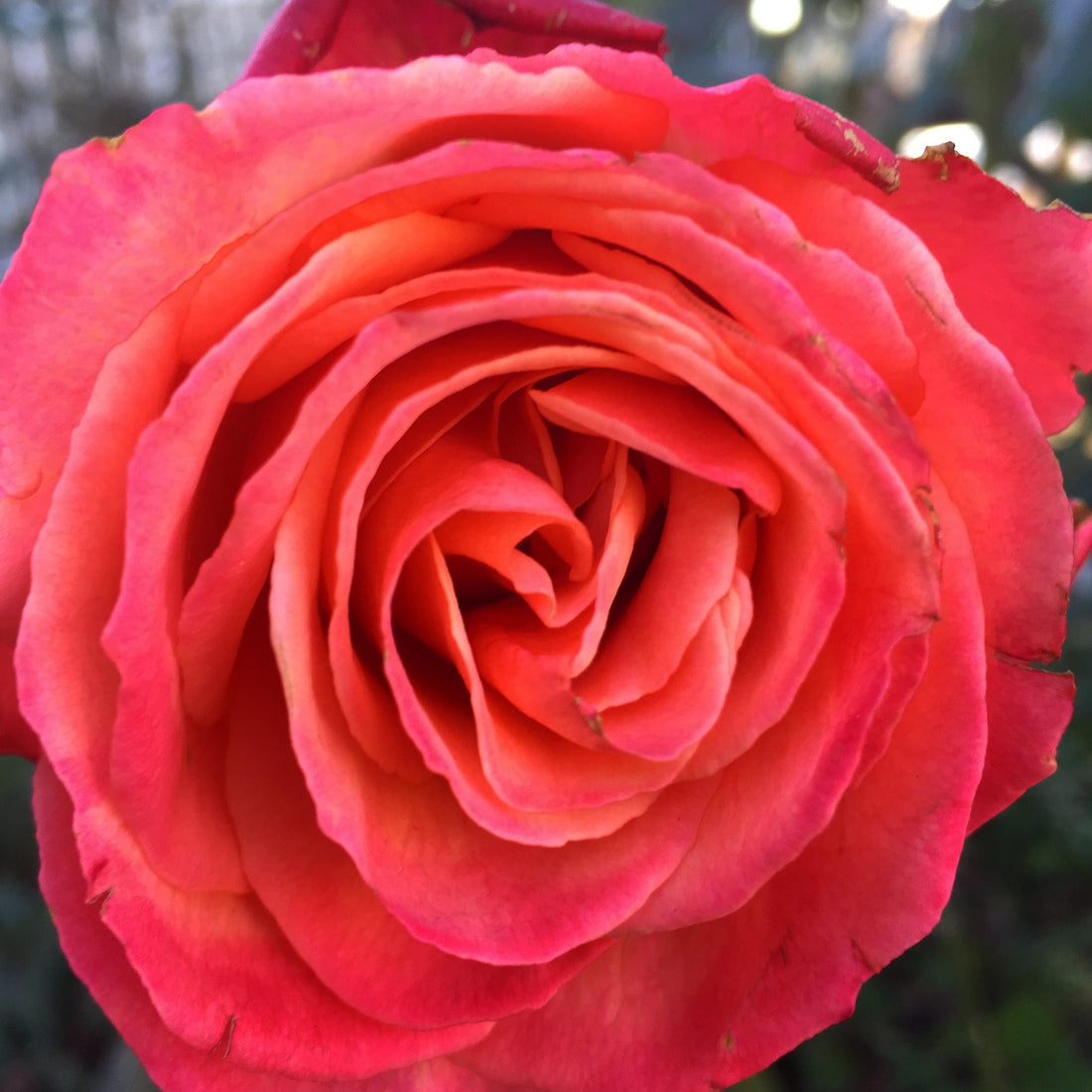
Rose For the Heart, Rose as Medicine
Share
The history of the rose plant is long and is deeply intertwined with culture, spirituality, and symbolism across various civilizations throughout the ages.Its beauty and enchanting fragrance have inspired countless poets, artists, and spiritual seekers.
Additionally, the rose flower, petals, and buds have held a revered place in perfumery and skincare, from enfleurage infusions into fats and oils for perfumery and skincare as well as the distillation of the essential oil and hydrosol for skin soothing and hydration. The relaxing and emotionally healing properties of the pure rose scent are part of its draw.
There are also rich traditions utilizing the culinary aspects of rose petals and rose water (also known as rose hydrosol) particularly in Middle Eastern, Indian, and Persian dishes. The delicate floral notes enhance certain desserts, beverages, and savory dishes. Rose petal jam, rose syrup, rose-infused chocolates, and candied roses are also culinary creations.
We know the rose for being a symbol of Love in our current western culture, and for a long time that's all I thought it meant, along with simply admiring its beauty and many fragrant and non-fragrant flower expressions.
When I went to research the history that we know for the use of rose throughout the ages, I found many examples and areas it was utilized. Here are a few.
The rose has a rich spiritual heritage that dates back to ancient times in Mesopotamia and Egypt. In Mesopotamia it was associated with the goddess Ishtar, the embodiment of love, beauty, and fertility. Similarly, in ancient Egypt, the rose was linked to the goddess Isis, who represented motherhood, magic, and rebirth.
In classical Greece and Rome, the rose continued to hold great spiritual significance. In Greek mythology, the rose was connected to Aphrodite, the goddess of love and desire. The Roman poet Virgil associated the rose with the goddess Venus, symbolizing love, beauty, and passion. Roses were commonly used in religious ceremonies and as offerings to the gods.
As Christianity emerged, the rose took on new spiritual meanings. It became a symbol of the Virgin Mary and her purity, often referred to as the "Mystical Rose." The red rose came to represent the blood of Christ and the martyrdom of saints. It was also associated with the Garden of Eden and the divine love of God.
In Islamic mysticism, particularly within the Sufi tradition, the rose carries deep spiritual symbolism. It is seen as a metaphor for the soul's journey toward divine union. The unfolding petals of the rose symbolize the stages of spiritual awakening and enlightenment.
During the medieval period, alchemists incorporated the rose into their spiritual practices. They associated the red rose with the process of transformation and the attainment of spiritual perfection. The alchemical "Rosarium Philosophorum" (Rosary of the Philosophers) often featured roses as symbols of the alchemical work.
Throughout the centuries, the rose has been a frequent subject of mystical poetry and symbolism. Poets and mystics have used the rose as a metaphor for divine love, spiritual awakening, and the beauty of the soul. The Persian poet Rumi, for example, often employed the rose as a symbol of spiritual longing and union.
"Every rose that is sweet-scented within, the rose is telling of the secrets of the universe." ~Rumi
In contemporary spirituality, the rose continues to hold spiritual significance. It is associated with love, healing, nurturing, and the opening and awakening of the heart. The rose is seen as a reminder to cultivate compassion, gratitude, and inner beauty. It is also known for holding a "high vibration," especially from the fresh rose and the essential oil, which when tested the rose essential oil had the highest megahertz score of any other essential oil tested!
For health and healing of the physical body, the rose also has many benefits.
Roses are packed with antioxidants that help protect the body against damage from free radicals. Antioxidants may contribute to reducing the risk of chronic diseases, supporting heart health, and boosting the immune system. Some compounds found in roses, such as polyphenols and flavonoids, exhibit anti-inflammatory properties. These properties may help reduce inflammation in the body, potentially benefiting conditions like arthritis and certain skin conditions. Roses can be consumed in tea form or glycerite extract for these effects.
Rose extracts, oils, and rose water have long been used in skincare products for their potential benefits. Roses are believed to have moisturizing, soothing, and toning effects on the skin. They may help hydrate dry skin, calm irritation, and improve overall skin texture.
I hope this article expanded your knowledge and understanding of the rose flower and its healing properties on many different levels.
Rose water or rose tea has been traditionally used to support digestion. It may help alleviate digestive discomfort and soothe an upset stomach. This is also true for the respiratory tract, helping to soothe the lungs especially from the tea or rose-infused water steams.
